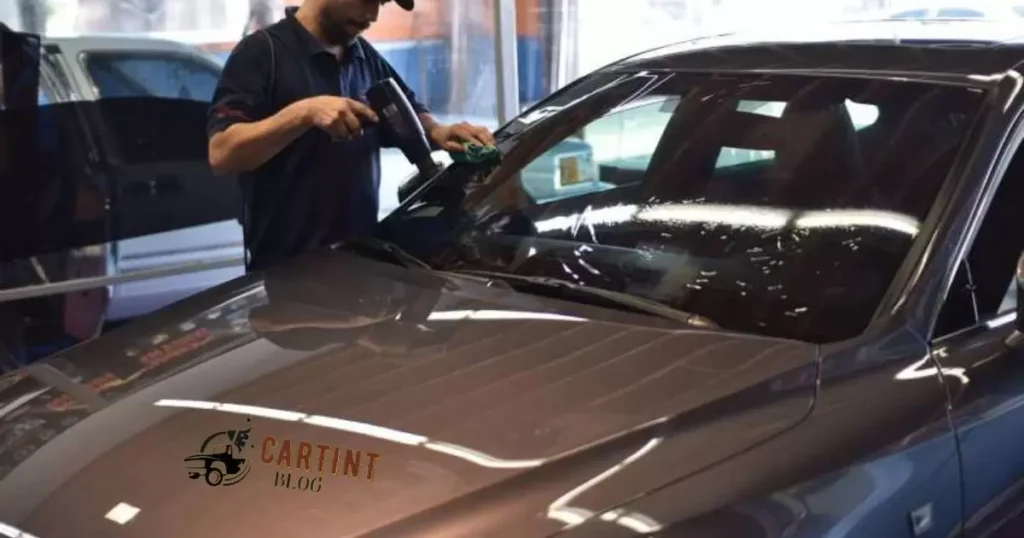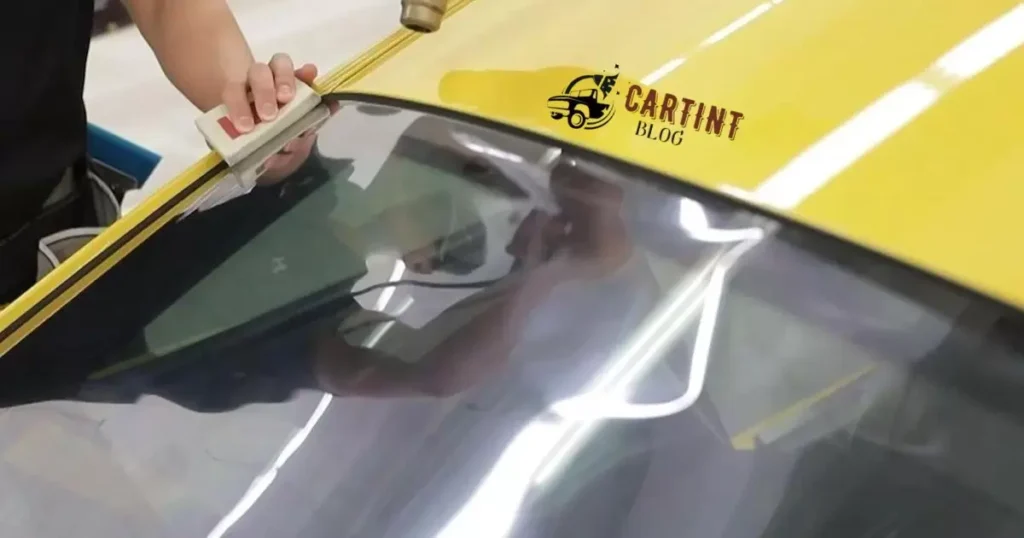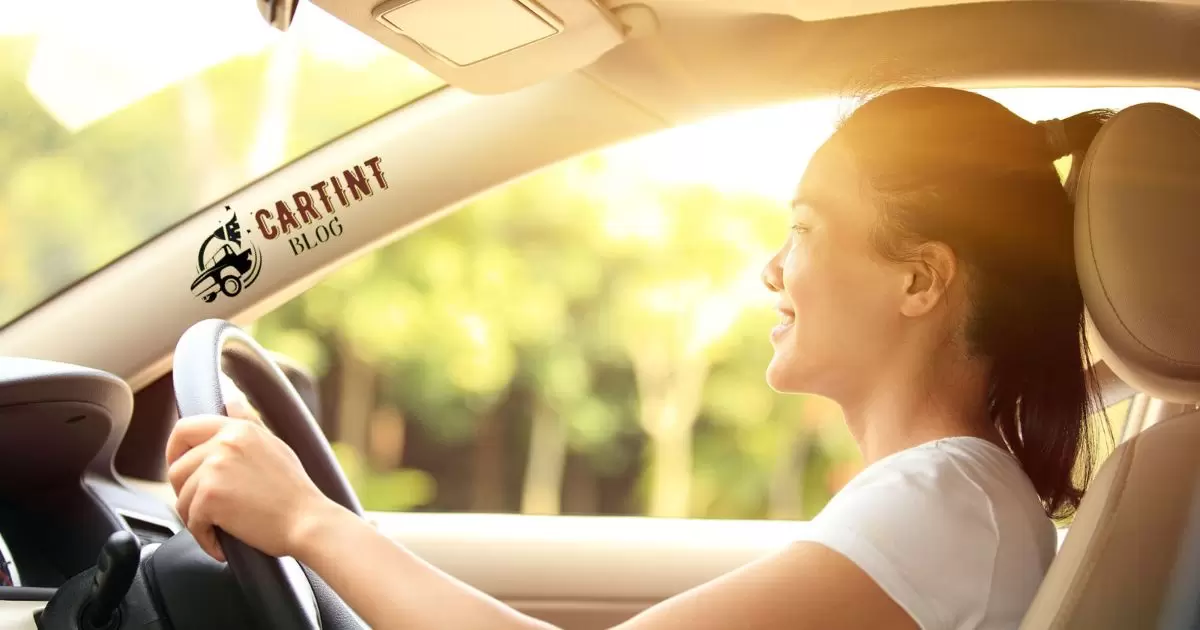Tints on car windows can make the interior hotter by reducing heat transfer. They block sunlight and infrared rays, trapping heat inside. Darker tints tend to absorb more heat, increasing interior temperature. High-quality tints can also offer UV protection and help regulate cabin temperature.
Have you ever wondered, Do tints make your car hotter? The answer might surprise you. Tints, often seen as a style choice, play a significant role in altering your car’s interior temperature. Whether they contribute to a hotter cabin or provide a cooling effect depends on various factors.
Stay with us to learn whether tints make your car hotter. Understanding the effects of window tints on your car’s interior temperature can make a difference in your comfort while driving. Let’s explore how tints impact the heat inside your vehicle and what you can do to optimize your driving experience.
13 Incredible Benefits Of Car Window Tinting
| Benefits of Car Window Tinting | Explanation |
| 1. Heat Reduction | Tints block sunlight, reducing interior heat, and enhancing comfort. |
| 2. UV Protection | They shield occupants from harmful UV rays, preventing skin damage and fading of upholstery. |
| 3. Glare Reduction | Tinted windows minimize glare, enhancing visibility and safety during driving. |
| 4. Interior Preservation | They help preserve the interior by reducing sun damage and slowing upholstery fading. |
| 5. Enhanced Privacy | Tints offer increased privacy by limiting the visibility into the car’s interior. |
| 6. Improved Security | They reinforce windows, making it harder to break in and reducing the risk of theft. |
| 7. Shatter Resistance | Tint films add a layer that holds shattered glass together in case of accidents. |
| 8. Energy Efficiency | By reducing heat transfer, tints aid in maintaining a more consistent cabin temperature, improving fuel efficiency. |
| 9. Aesthetics | They enhance the overall appearance of the vehicle, adding a sleek and sophisticated look. |
| 10. Reduced Glare for Screens | Tints reduce glare on electronic screens, enhancing visibility of devices inside the car. |
| 11. Comfort Enhancement | They create a more comfortable driving environment by regulating interior temperature. |
| 12. Resale Value | Tinted windows can increase the resale value of a car by preserving its interior condition. |
| 13. Skin Protection | They provide added protection against skin conditions caused by prolonged sun exposure while driving. |
Does Window Tint Reduce Heat?
When considering How much window tint do I need? for your car, it’s crucial to understand its benefits. Window tint serves as a barrier against sunlight and harmful UV rays, effectively curbing heat and maintaining a cooler interior.
When sunlight hits the tinted windows, they deflect a significant portion of the heat, minimizing the warmth that enters. As a result, the cabin temperature stays lower, providing a more enjoyable driving experience, especially during hot days. Window tint is an effective way to reduce heat and enhance comfort while on the road.
Answering Does Tinting Windows Keep Car Cooler
Tinting windows keeps your car cooler by blocking sunlight that can heat up the interior. These tints act as a barrier, reducing the amount of heat that enters your vehicle. They work like sunglasses for your car, cutting down on glare and keeping temperatures more comfortable while you drive.
When you tint your windows, you create a shield against the sun’s rays, helping maintain a cooler cabin. This not only improves comfort but also safeguards your car’s interior from potential sun damage, making it a practical and beneficial choice for many drivers.
Do Tinted Windows Make Cars Cooler?

Tinted windows help keep cars cooler by blocking sunlight and reducing heat buildup inside. They work like sunglasses for your vehicle, minimizing the amount of heat that enters through the windows.
By limiting the sun’s rays, tinted windows help maintain a more comfortable temperature inside the car, especially during hot weather.When the sun’s glare is reduced, the interior temperature of the car stays lower, making it more pleasant for passengers.
Tinted windows also aid in preserving the vehicle’s interior by minimizing sun damage to the upholstery and dashboard. Overall, they play a crucial role in creating a cooler and more comfortable environment inside your car.
Does Window Tint Help Keep Your Car Cooler?
Window tinting helps keep your car cooler by blocking the sun’s heat and reducing interior temperatures. It acts like a shield, preventing direct sunlight from entering and heating up your vehicle. These tints work by absorbing or reflecting the sun’s rays, maintaining a more comfortable temperature inside your car.
When installed correctly, window tinting can significantly decrease the amount of heat that enters through the windows. By minimizing heat buildup, tints help create a more enjoyable driving experience, especially during hot weather. They provide relief by keeping your car’s interior cooler and more pleasant for your journey.
Disadvantages Of Tinting Car Windows
- Reduced visibility at night or in low-light conditions, especially with darker tints.
- Potential legal issues if the tint darkness violates state regulations.
- Difficulty with removal or replacement of tints, leading to extra costs.
- Interference with electronic signals, like GPS or cell phone reception.
- Possibility of bubbles, peeling, or discoloration over time, especially with poor-quality tints.
- Higher upfront costs for professional installation of quality tints.
Does Tint Make A Car Look Better
Tints can significantly enhance a car’s appearance. They add a sleek, stylish vibe to the vehicle, giving it a more polished and sophisticated look. These tinted windows often create a sleek silhouette that complements the overall aesthetic, making the car stand out on the road.
Many car enthusiasts swear by window tints for their ability to elevate the visual appeal. Tints not only offer a sense of privacy but also lend a touch of elegance to the vehicle’s exterior. They’re a simple yet effective way to instantly improve a car’s overall look and feel.
How Much Cooler Does Tint Make Your Car
Window tinting can significantly reduce the heat inside your car. Tinted windows block sunlight, lowering the temperature by up to 60%. This cooling effect makes driving more comfortable, especially during hot weather.
The reduction in heat can help preserve your car’s interior, preventing damage from prolonged sun exposure.The degree of cooling largely depends on the tint’s darkness and quality. Darker tints tend to provide more substantial heat reduction compared to lighter ones.
High-quality tints with advanced technology offer better heat rejection, ensuring a cooler interior while driving. Understanding these factors helps in choosing the right tint to maximize the cooling benefits for your car.
Does Tint Help With Heat In Car

Tints help reduce heat in cars by blocking sunlight and minimizing the amount of heat that enters through the windows. They act as a barrier against infrared rays, which are responsible for heating up the interior.
By installing tints on your car windows, you can significantly lower the temperature inside, making it more comfortable during hot weather.The tint film applied to car windows works by rejecting solar heat, preventing it from penetrating the glass and heating up the cabin.
This simple solution effectively combats the greenhouse effect in your car, keeping it cooler and more enjoyable to drive, especially in sunny conditions.
Window Tint To Reduce Heat In House
Window tinting can lower house temperatures effectively. It blocks sunlight, reducing heat gain indoors. These tints work like sunglasses for your windows, keeping your home cooler without relying solely on air conditioning. They’re a simple, energy-efficient solution to maintain a comfortable environment indoors while cutting down on energy costs.
When applied to windows, tinting acts as a barrier against the sun’s heat. It’s a cost-effective way to enhance your home’s energy efficiency by minimizing the need for excessive cooling. By reducing the amount of heat that enters, window tinting ensures a more pleasant atmosphere inside your house, especially during hot weather.
Car Window Tinting Benefits
Car window tinting offers various benefits. Firstly, it reduces heat by blocking sunlight, making the interior more comfortable. Tints provide UV protection, safeguarding occupants from harmful rays that can cause skin damage and fade upholstery.
They enhance privacy and security by limiting visibility into the car and reinforcing window strength.Furthermore, tinted windows help preserve the interior by slowing down sun damage and preventing upholstery from fading.
They also contribute to a more energy-efficient ride by maintaining a more consistent cabin temperature, ultimately improving fuel efficiency. Overall, car window tinting goes beyond aesthetics, providing a range of practical advantages for a more enjoyable and protected driving experience.
Do Tinted Windows Keep Car Cooler
Tinted windows help keep your car cooler by blocking sunlight and reducing heat buildup inside. They act as a barrier, preventing excessive warmth from entering your vehicle. These window films limit the amount of solar radiation that penetrates, effectively maintaining a more comfortable temperature within your car.
Thus, tinted windows play a crucial role in minimizing heat and enhancing your driving experience on hot days.When the sun’s rays hit tinted windows, they reflect and absorb a significant portion of the heat, preventing it from infiltrating the interior.
This process reduces the need for excessive air conditioning, saving energy and ensuring a more pleasant ride during scorching weather. By reducing the amount of heat that enters your car, tinted windows contribute significantly to creating a cooler and more enjoyable environment for both short drives and long journeys.
Does Window Tinting Reduce Heat In Car
Window tinting reduces heat in cars by blocking sunlight. It acts like a barrier, preventing the sun’s rays from penetrating the windows and heating up the interior. This helps maintain a cooler temperature inside the car, making your drive more comfortable, especially on hot days.
By blocking the sun’s rays, window tinting lowers the amount of heat that enters your car. This helps in creating a more enjoyable driving experience, minimizing the need for excessive air conditioning and reducing the overall temperature inside the vehicle.
Does Window Tint Block Heat
Window tinting blocks heat by reducing the amount of sunlight that enters your car. The tint film acts as a barrier, preventing a significant portion of the sun’s heat from penetrating through the windows.
This helps in keeping the interior cooler and more comfortable, especially during hot weather. By limiting the sun’s rays, window tinting serves as an effective method to minimize the heat that builds up inside your vehicle.Window tinting can contribute to energy efficiency by reducing the need for constant air conditioning.
The film’s ability to block heat helps maintain a more consistent temperature inside the car, decreasing reliance on cooling systems. Consequently, this can lead to less strain on the vehicle’s air conditioning unit and potentially lower fuel consumption.
Does Window Tint Increase Heat?

Window tint can indeed increase the heat inside your car. It acts like a barrier, trapping heat from sunlight and preventing it from escaping. When sunlight hits tinted windows, they absorb some of the heat, causing the interior temperature to rise. This effect varies based on the tint darkness and the quality of the film used.
Not all tints intensify heat equally. High-quality tints can mitigate heat by blocking certain types of solar radiation. They can strike a balance, reducing the heat influx while still allowing light transmission. Understanding the type and quality of the tint can help manage heat build-up inside your vehicle more effectively.
Does Darker Tint Block More Heat?
Darker tints block more heat than lighter ones. The deeper shade absorbs and holds back sunlight better, reducing the heat that enters your car. This means a darker tint can help keep your car cooler on hot days by preventing more heat from coming inside.
The effectiveness of the tint can also depend on its quality. High-quality darker tints often have better heat-blocking properties compared to cheaper options. Choosing the right tint can make a noticeable difference in maintaining a comfortable temperature inside your vehicle.
FAQ’s
Does 35 tint reduce heat?
Yes, 35% tint can reduce heat by blocking a portion of sunlight. It helps in moderating interior temperatures to enhance comfort.
Does 70% tint block heat?
Yes, 70% tint blocks some heat and light, but to a lesser extent compared to darker tints. It offers moderate heat reduction.
Does 70 tint reduce heat?
Yes, a 70% tint reduces heat to a degree by limiting sunlight penetration. It provides less heat reduction than darker tints.
Conclusion
In conclusion, the answer to the question: Do tints make your car hotter? isn’t straightforward. Tints play a significant role in managing the interior temperature of your car. While they do block sunlight and can initially make the interior warmer by trapping heat, their effectiveness varies based on tint darkness, quality, and other factors.
Choosing the right tint can indeed help regulate the temperature inside your car. Opting for high-quality tints, considering the local climate, and balancing darkness for heat reduction can create a comfortable driving environment.



